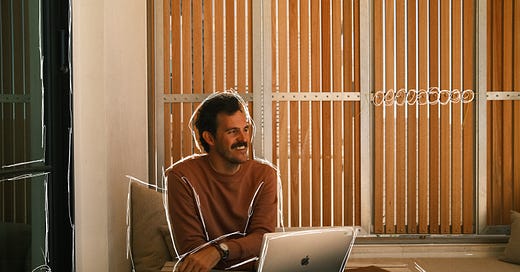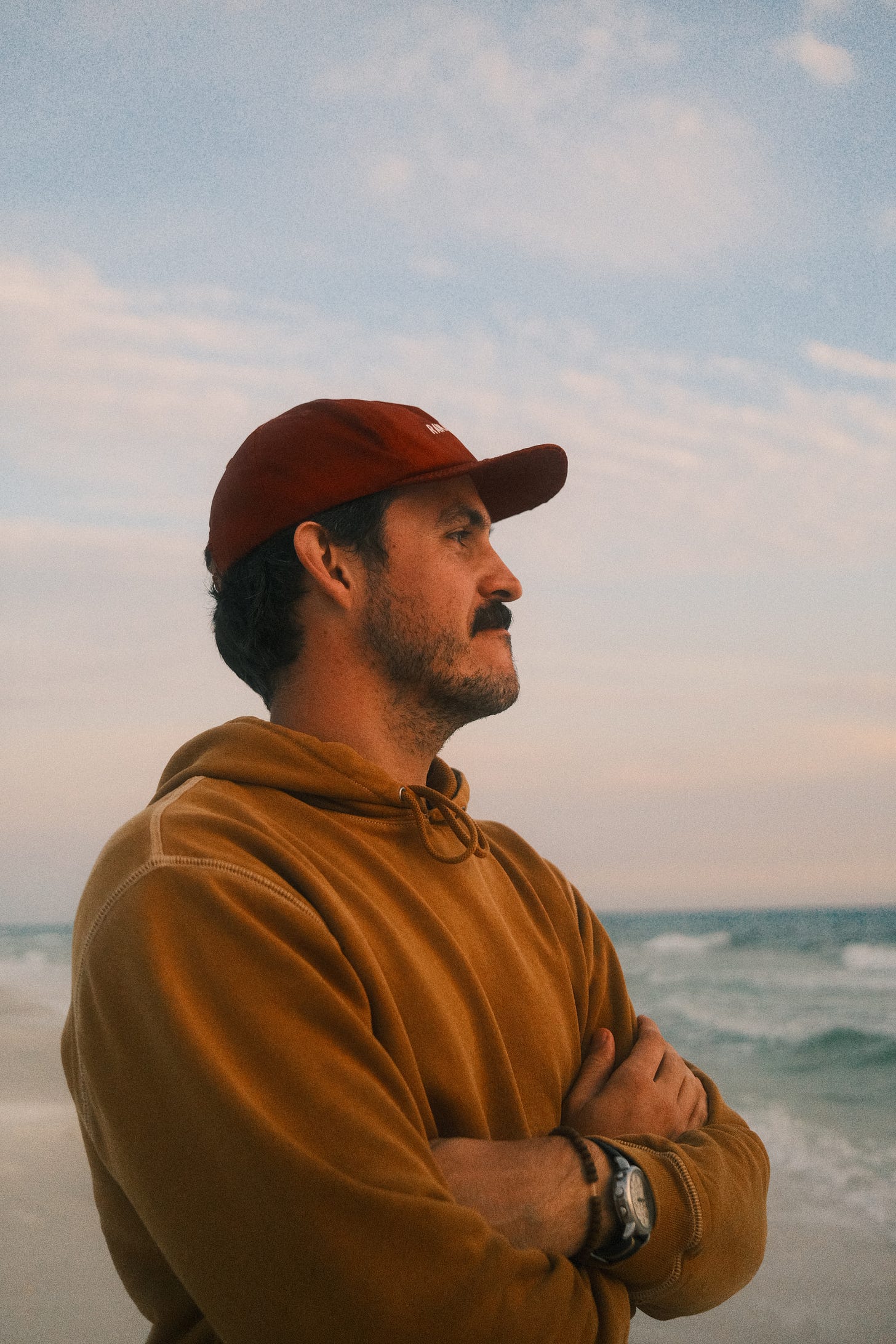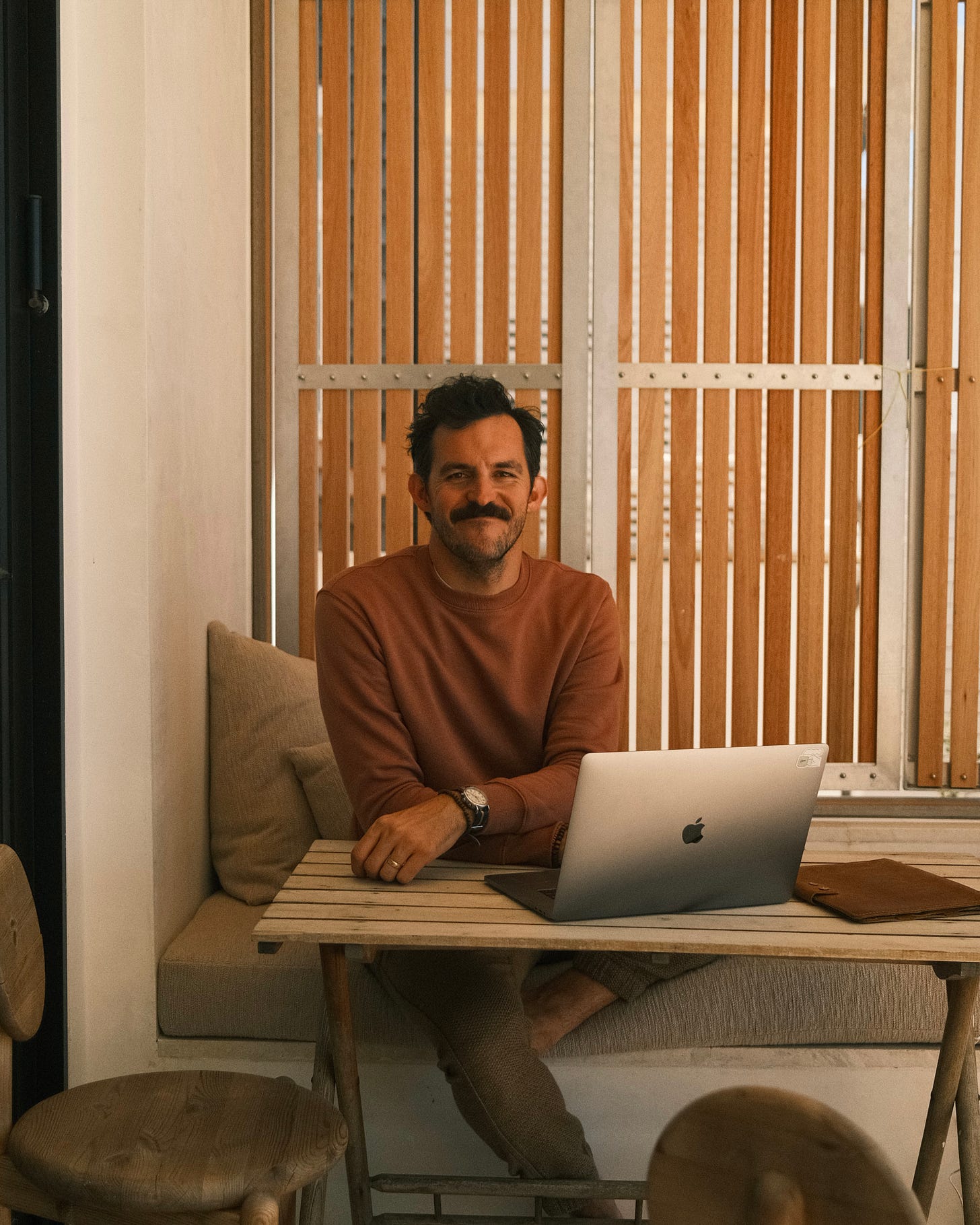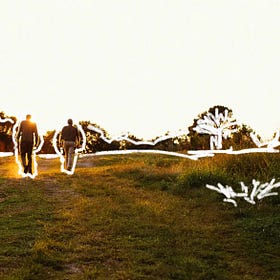If you’re new here, welcome! Each week get evidence-based insights from a licensed therapist on healing attachment wounds, softening fear, and learning to trust again.
9 years ago I found myself at an intensive four-day counseling/treatment experience for an addiction that I finally got honest about. I had grown up in church, studied Christian Ministries in undergrad on my way to become a pastor, and was trying to focus on my faith–very imperfectly. So, it's not like I ended up in this place of feeling empty inside due to a lack of relationship with Jesus.
But how did I get there? How do any of us get to the point where we believe vulnerability is weakness, that we need to perform to be loved, and that we shouldn't ask for help?
Especially those of us whose faith tradition is built on intimate relationship– the Trinity.
We've been asking that question since the beginning of time. Even the first question God asks is "Where are you?" The first invitation to humanity to begin to ponder how we got where we are.
I don't know many things, but I do know our hearts are wired for connection and somewhere along the way we experienced disconnection, followed by shame, followed by hiding, followed by protecting ourselves and avoiding the hard work of moving towards re-connection. Again, we've been doing that since the beginning of time (see Adam and Eve).
Today, most of us, especially men, can still fall victim to the belief that expressing emotion makes us weak. That we should have the answers, fix the problems, and never admit when we're drowning–pretend like everything is fine.
I know this process intimately – both as a therapist and as a man who's walked this path myself. The masks we wear become so familiar that we can forget they're not actually our face.
The Paradox
We live in the most connected era in human history. Our phones constantly buzz with notifications, our calendars overflow with commitments, we're always "busy" and yet... men are experiencing unprecedented levels of isolation, anxiety, and spiritual numbness.
When I first noticed this disconnect in my own life, more accurately stated: When this disconnect uninvitedly reared its head, I tried what most of us try:
Pull myself up by my bootstraps
Perform and achieve more
Pray harder
Just flat out lie
Numb out and distract myself
The problem I kept running into is that none of these approaches actually addresses what our hearts deeply long for: authentic connection – with ourselves, with others, and with God.
Breaking the Cycle
Here's what I've learned in my own journey and years of working with men in my practice as a licensed therapist:
The path toward healing isn't about gaining more intellectual knowledge or finding the perfect self-improvement strategy.
It's about stopping the endless running and turning toward what we've been avoiding – our wounds, our fears, and ultimately, the deepest parts of ourselves.
This kind of turning inward requires tremendous courage. It means questioning cultural narratives about what makes a "real man." It means acknowledging that behind our drive for success or our tendency to isolate, there often lie unprocessed attachment wounds and trauma.
Of course we need to do more than just acknowledge. We need to do the work. I can acknowledge that my check engine light is on. But I can also ignore it and hope it goes away. Remind me to tell you the story of when I actually did that and ended up blowing a head gasket and my car was toast. Like I said... I know this process intimately.
A Small Step You Can Take Today
I'm not a big fan of quick fixes or three-step solutions that promise instant transformation. True healing and connection happen gradually, through consistent small moves in the right direction.
Here's one small step you might consider this week:
Notice when you're putting on a mask – whether it's the "I've got it all figured out" mask, the "nothing bothers me" mask, or the "I don't need anyone" mask. Just notice, without judgment.
What triggered you to reach for that protection? What might be underneath?
Then, tell someone about it. Be honest about the mask you put on and explore, with them, what might be underneath it. And journal about it. Talk with God about the masks you can put on and ask him to open your eyes to see what you might be protecting.
The Connected Man: An Invitation
I've been reflecting deeply lately on what it means to be a connected man in the world. A man connected to his heart and his strength. We are in a time where there are a lot of disconnected men and many conflicting, and just plain bad, messages on what it looks like to be a man after God's own heart.
I want to keep moving toward true connection in a culture designed to keep us isolated and distracted. I want to show my family and friends and people I interact with what an emotionally mature man can look like. And I want it to be authentic.
Connection isn't just about having more relationships or conversations. It's about the quality and depth of how we engage with ourselves, others, and God. It's about removing the barriers we've constructed to protect ourselves from pain, only to discover they're also keeping out joy.
We don't have to stay in survival mode. We don't have to keep faking it until we make it. We can experience that surrender is a gift. We can choose the way of Jesus– gentle and humble in heart.
With you on the journey,
Blake
P.S. I'd love to hear your thoughts on this concept of "The Connected Man." What resonates with you about the tension between connection and disconnection in your own life?
Hit reply and let me know – I read every message and your feedback helps shape future articles and conversations. Plus, its encouraging!
Read More:
There's an Epidemic Among Men
I had a client, let’s call him Eric, who was 37 and married with three young children. Another client, whom we’ll call Joe, was 24 and single. Eric had worked for a successful company for 12 years and had transitioned into a leadership role in charge of a team of 12 people.
A Therapist's Guide to Navigating Complex Relationships with Parents
I was asked by Katrina Donham to write an article about parental estrangement for her new Therapist Spotlight series in her publication. It was a labor of love, as this topic is close to both my personal story and clinical experience. I hope you experience the same reaction she did: "I teared up at the end because what you've offered is hope, peace, and understanding…











Hi Blake - I thought you might be interested in interview I did with Ashanti Branch, who talks about masks a lot in his work with young men.
https://www.teenhealthtoday.com/p/helping-boys-express-masculinity
Thanks for sharing part of your personal journey Blake. Our stories are powerful conduits of connection when we risk sharing them with other men. They remind us we’re not alone.